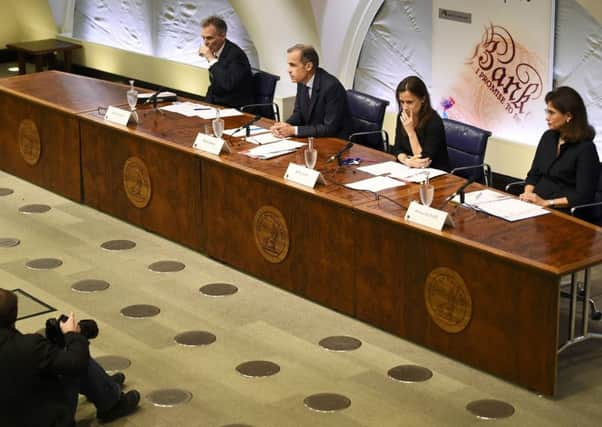Thousands of Edinburgh financial jobs face axe after Brexit


Harriett Baldwin will say that Edinburgh-based financial giants such as Royal Bank of Scotland and Standard Life can trade across the EU without the “cost complexity” that firms outside the UK face.
The sector employs about 85,000 people, with the substantial financial hubs in the capital and Glasgow the biggest in the UK outside London.
Advertisement
Hide AdAdvertisement
Hide AdThe warning came yesterday as Bank of England governor Mark Carney claimed that Britain could be forced into “technical recession” if it leaves the EU. David Cameron said Mr Carney’s remarks sent a “very clear message” of the risks of Brexit.
Ms Baldwin, who is also economic secretary to the Treasury, will tell Scots that a vote to remain in next month’s EU referendum will protect jobs and ensure businesses north of the Border continue to grow.
Despite the crash eight years ago, financial services still make up about than 7 per cent of Scotland’s economy and employ around 85,000 people, with a further 70,000 working in the supply chain.
“Membership of the EU and the enormous benefits this provides means that the financial services sector in Scotland is thriving,” Ms Baldwin will say. “As part of the EU, as part of the single market and as part of a modern economy, business in Scotland has been booming.
“Since 2010, 55,400 new businesses have started up in Scotland and have been able to access the finance they need to grow. It is clear that for Scotland’s future prosperity that there is no credible or, in fact, more desirable alternative to EU membership.”
She will talk to entrepreneurs and financial services leaders about the benefits of remaining in the EU on her visit today, and take part in a roundtable discussion organised by trade body Scottish Financial Enterprise, as well visiting CodeBase, the largest technology incubator in the UK.
The latest minutes from the Bank’s Monetary Policy Committee (MPC) yesterday said that a Leave vote may cause both growth and sterling to fall and unemployment to rise.
Mr Carney said the Bank had not compiled formal forecasts about the possibility of a recession – defined as two consecutive quarters of negative growth – resulting from a Brexit vote.
Advertisement
Hide AdAdvertisement
Hide AdBut he warned: “A vote to leave the EU could have material economic influences on the exchange rate, on demands and on the economic supply potential.”
He said this could mean a “materially lower path for growth and a notably higher path for inflation”.
Chancellor George Osborne said this was a “clear and unequivocal warning”. He said: “Either families would face lower incomes because inflation would be higher, or the economy would be weaker with a hit to jobs and livelihoods. This is a lose-lose situation for Britain.”
But Jacob Rees Mogg, a Tory MP and Treasury select committee member, called on Mr Carney to resign.
Mr Rees Mogg said: “I think it is unprecedented for the governor of a central bank to suggest that people should short his own currency. Suggesting sterling will fall sharply is simply not what responsible central bankers do.”